|
Left-Hand Daggers
|
When Christopher Columbus first
voyaged to the New World,
Spanish swordsmen and pikemen
carried daggers that resembled
small swords. They had simple,
straight, and often short
cross-guards (quillons). By the
time Hernando de Soto began
exploring Florida in 1539, the
style of daggers had changed to
that of the parrying dagger (parrying poniard or poignard). A two-handed
form of personal combat
had become popular in western
Europe during the early 16th
century. A sword or rapier would be held in the right hand while a dagger was held in the left
(1).
The daggers were
designed to parry or block an
opponent`s blows and to attack by
cutting or thrusting.
|
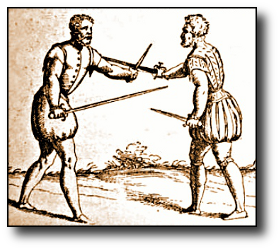
|
|
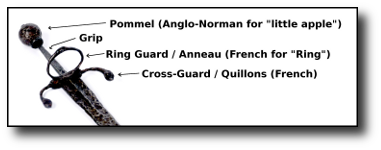
|
Left-hand daggers included
features like side rings
(anneau or anneaux), shell guards and
large curved cross-guards These helped to protect the user`s hand, and were meant to deflect or even capture and break an opponent`s blade (2).
|
The writings of early explorers have many references to the use of daggers. Unfortunately they
don`t specify the type of
dagger or describe other
details like how they were
worn.
In 1591 Theodore de Bry
published an illustrated
account of the
Laudonniere`s 1564-65
attempt to establish a
Huguenot settlement in
Florida. The account was
titled "Brevis narratio
eorum quae in Florida
Americai provincia Gallis
acciderunt" (A Short
Narrative of What Happened
in the French Province of
Florida America). The
illustrations are
attributed to Jacques le
Moyne (3), but
many historians and
archaeologists question
their authenticity (4).
Whether the depictions of
Florida are accurate or
not, there can be little
doubt that the period
engravings show how the
left-hand dagger was worn
at the time.
|
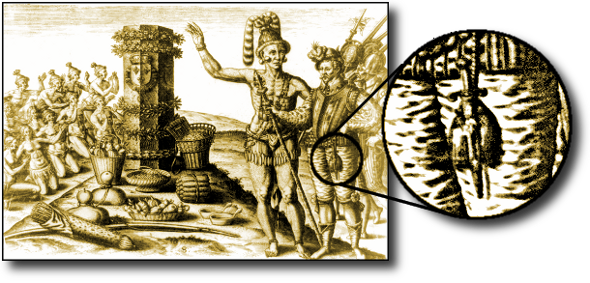
|
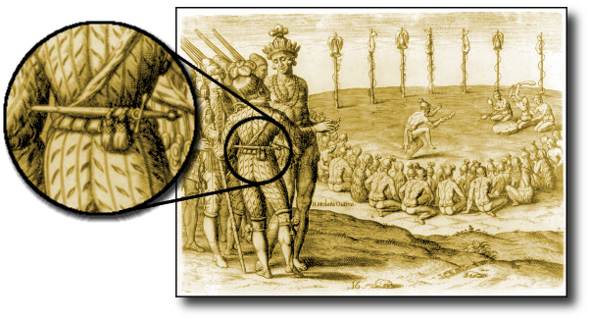
|
By the beginning of the 17th century the Main Gauche form of the parring dagger had evolved. These daggers have very long straight quillons and a wide triangular knuckle bow guard (5). Main Gauche means "Left Hand" in French. Today, many people use the term Main Gauche when referring to left-hand parrying daggers in general.
|
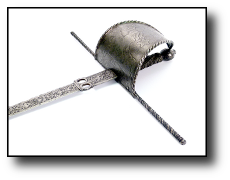
|
|
References
(1) Parrying Daggers
and Poniards, by Leonid Tarassuk,
The Metropolitan Museum of Art,
(2) True Art of Defense, by Giacomo DiGrassi`s 1570, IX. Rapier and Dagger
(3) Illustrations
from "Brevis narratio eorum quae
in Florida Americai provincia
Gallis acciderunt", The Library of Congress
(4) The Devil in the
Details, by Jerald T. Milanich,
Archaeology Volume 58 Number 3,
May/June 2005.
(5) Arms and Armor in Colonial America, 1526-1783, By Harold L. Peterson 1956, page 90 in the 2000 edition
|
|
|